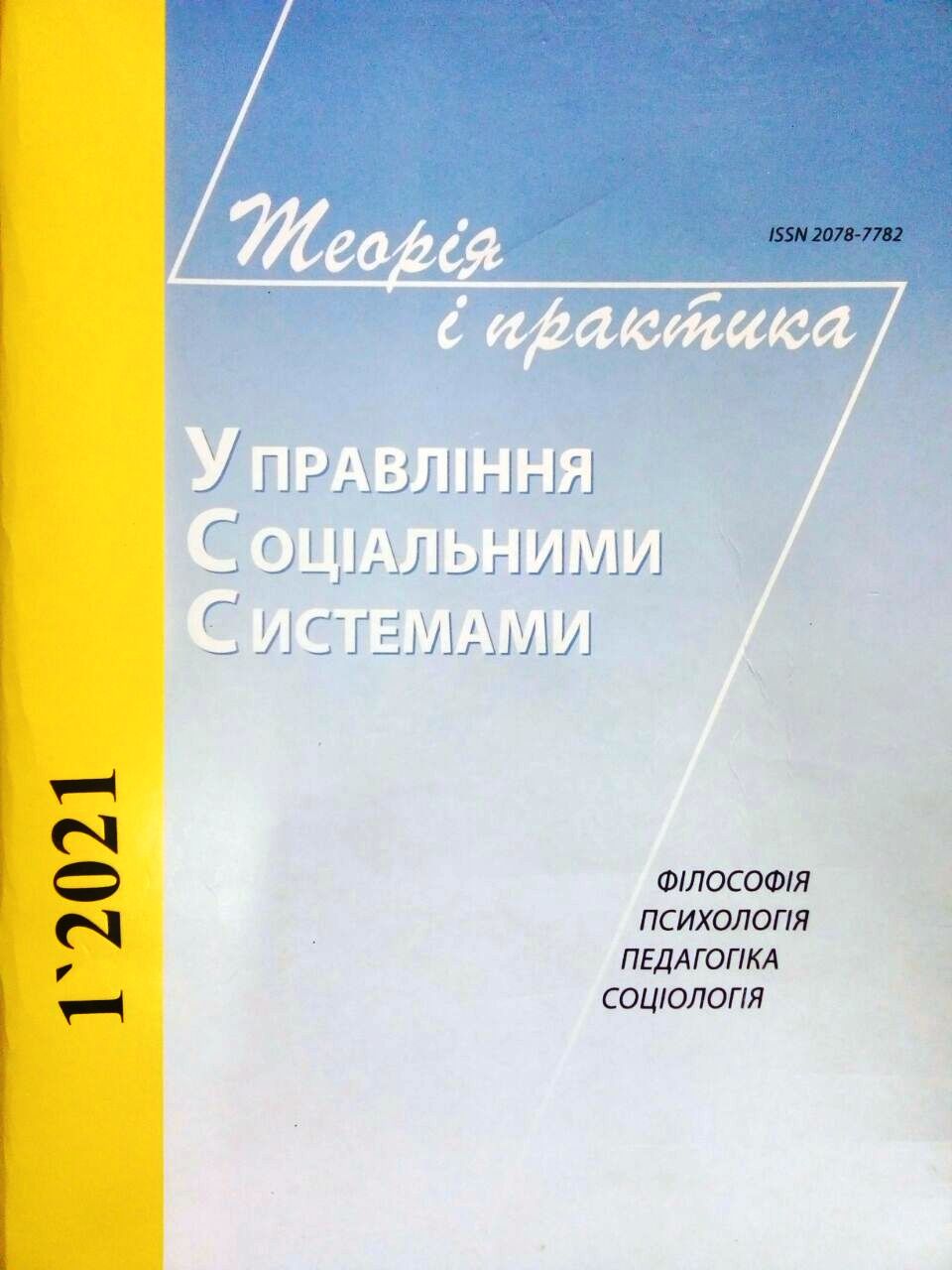ТЕХНОЛОГІЯ ВДОСКОНАЛЕННЯ ПРОФЕСІЙНОЇ КОМПЕТЕНТНОСТІ ПЕДАГОГІЧНИХ ПРАЦІВНИКІВ В УМОВАХ ПІДВИЩЕННЯ КВАЛІФІКАЦІЇ
DOI:
https://doi.org/10.20998/2078-7782.2021.1.03Ключові слова:
технологія навчання, базова професійна компетентність, підвищення кваліфікації педагогічних кадрів, методика, науко-педагогічні працівники, семінар, лекція, тренінг, заклад вищої освіти.Анотація
У статті розкрито суть таких понять, як “компетентність”, “професійна компетентність”, “технологія”; доведено, що удосконалення професійної компетентності педагогічних працівників під час підвищення кваліфікації відбувається за допомогою технології, складовими якої виступають лекційні, семінарські заняття, тренінги; визначено суттєві відмінності методики проведення лабораторних і практичних занять із природничих дисциплін, методики проведення гуманітарних та суспільних дисциплін у досягненні основних навчальних цілей та методики викладання юридичних дисциплін у закладах вищої освіти; розкрито важливість набутих знань із надання соціально-психологічних та корекційних послуг студентам з особливими освітніми потребами та практичного їх застосування у практиці закладів вищої освіти; доведено ефективність обраної технології для слухачів курсів підвищення кваліфікації у їх подальшій педагогічній діяльності.
Посилання
1. Byk, A. (2005), “Modernization of postgraduate pedagogical education: methodological discourse”,Postgraduate education in Ukraine, № 1, pp. 3–6
2. Brikina, O. (2007), “Continuous education of personality in the context of the Bologna process”, Pedagogy and psychology of formation of creative personality: problems and searches: collection. Science. etc. resp. ed. TI Sushchenko, K .: Zaporozhye, vip. 41, p. 496, pp. 55–59
3. Goncharenko, S. V (2001),“Humanization and humanitarianization of education”, The way of education, no. 2, pp.2–6
4. Grebenyuk, O. S. (2003), “Generalbases of pedagogy”, M.: Vlados, p.160
5. Dombrovska, S. M. (2010), “Theoretical aspects of formation of mechanisms of public administration in reforming of higher education of Ukraine”, available at:http://www.kbuapa.kharkov.ua/e-book/db/2010-2/doc/2/01.pdf.
6. Navolokova, N. P. (2009),“Encyclopedia of pedagogical technologies and innovations”, Author-compiler H.: Type Basis group, p. 176
7. Law of Ukraine “On Education” Information of the Verkhovna Rada (VVR)(2017), no. 38–39, st. 380, available at:https://zakon.rada.gov.ua/laws/show/2145-19
8. Lisina, L. O. (2007), “Tehnologii navchannia vchyteliv u poslediplomnii pedagohichnii osviti”, Zaporozhye: Miracle, p. 198
9. Moroz, S. A., Buka, I. S., Moroz, V. M., Gren, L. N (2019),“Determinants of quality of higher education: significance and force of influence (according to the results of expert evaluation of students of the Baltic International Academy, Latvia)”, VESTNIK KazNPU im. Abaya, series “Pedagogical Sciences”, no. 1 (61), pp. 74–80
10. Oliynyk, V. (2000), “On the prospects of development of postgraduate pedagogical education in Ukraine”, Director of the school, no. 2, pp. 2–3
11. Perevozniuk, N. M.(2011),“Comparative analysis of the concepts “competence” and “competence”, Nauk. Bulletin of the National University of Bioresources and Nature Management of Ukraine: pedagogy, psychology, philosophy, no. 159, ch. 4, pp. 156–166
12. Postupna, O. V. (2010), “Mechanisms of state management of higher education at the regional level”, author’s ref. dis. cand. sciences of the state, management: 25.00.02, Nat. acad. state under the President of Ukraine, Hark. region. Inst, K:, p. 2013.
13. Prokopenko, I. F., Evdokimov, V.I. (1995), “Pedagogical technology”, H.: Basis, p. 105
14. Romanovsky, A. G (2005),“Innovative pedagogical technologies as the basis for the development of philosophy of education”, Theory and practice of social systems management, no. 1, pp. 47–55
15. Russol, V. (2003), “Teacher’s personality – a vector of educational changes”, Postgraduate education in Ukraine, no. 3, pp. 56–61
16. Sadkovy, V. P. (2017),“Mechanisms for ensuring the quality of continuing education”, Public administration in the field of civil protection: education, science, practice: materials of the AllUkrainian scientific–practical Internet conference, February 22–23, 2017, for general ed. Sadkov, V. P., H.: Published by NUTSZU, pp. 40–41
17. Semichenko, V. A. (2001), “From the basic features of pedagogical activity – to the base of pedagogical technologies”, Professional education: theory and practice, Scientific and methodical magazine, no. 1, pp. 96–108
18. Sorochan, T. M. (2005),“Continuous process of professionalism of teachers in the system of postgraduate education”, Postgraduate education in Ukraine, no. 1, no. 75–80
19. Strelnikov, V. Yu. (2012”, “Model of teacher qualities as a designer of adult education technologies. Origins of pedagogical skill”, Collection of scientific works of Poltava State Pedagogical University named after Korolenko, V. G., vip. 10, Series: Pedagogical sciences, Poltava: ASMI Publishing House, pp. 270–275
20. Strelnikov. V. Yu., Lebedyk L. V.(2015),“Innovative technologies of master’s degree specialization “Higher school pedagogy”. Actual problems and prospects of food production development, hotelrestaurant and tourist business”, Abstracts add. International, scientific-practical conf. (Poltava, November 20–21, 2014), Poltava: PUET, pp. 310–312
21. Gren, L. M., Vavrenyuk, S. A., Aliyeva, P. I. (2021), “Modern education of Ukraine:state–Ukrainian aspect”, Monograph, Kharkiv: Ivanchenko Publishing House IS, p. 238
22. Tevlin, B. L. (2006),“Professional training of teachers”, H.: Osnova publishing group, p. 192
23. Tsymbalyuk, I. M. (2006),“Adult education: inexhaustible opportunities”, Management of education, no. 15 – 16, pp. 7–9
24. Chaika, V. M. (2006), “Theory and preparation of the future teacher for self-regulation of pedagogical activity”, Author’s abstract. dis. for science. degree of doctor ped. sciences: special: 13.00.004 “Theory and methods of vocational education”, Ternopil, p. 44
25. Moroz, S. A., Romanovskyj,O.G., Moroz, V. M., Dombrowska, S. M., Gren, L. М., Pomaza Ponomarenko, A. L.(2020), “Distance form of obtaining of higher education: analysis of students’ opinions onquality, advantages and disadvantages”, Information Technologies and Learning Tools, no. 79 (5), pp. 276–295, available at: https://doi.org/10.33407/itlt.v79i5.3340
26. Alexiadou, N., Fink-Hafner, D., Lange, B., “Education Policy Converg ence through the Open Method of Coordination: Theoretical Reflections and Implementation in ‘old’ and ‘new’ National Contexts”
27. Pandey, I. M., “Governance of Higher Education Institutions”, vol. 29 issue: 2, page (s): 79–84
28. Redondo, E. G. (2016), “Governance in educational institutions in Portugal”, Jan 15, pp. 17–22, available at:https://doi.org/10.7821/naer. 2016.1.156 Department of Theory and History of Education, University of Salamanca, Spain

##submission.downloads##
Опубліковано
Номер
Розділ
Ліцензія
Авторське право (c) 2021 Лариса Грень, Юрій Панфілов, Тетяна Єрьоменко

Ця робота ліцензується відповідно до Creative Commons Attribution-NonCommercial-NoDerivatives 4.0 International License.
Автори, які публікуються у цьому журналі, погоджуються з наступними умовами:- Автори залишають за собою право на авторство своєї роботи та передають журналу право першої публікації цієї роботи на умовах ліцензії Creative Commons Attribution License, котра дозволяє іншим особам вільно розповсюджувати опубліковану роботу з обов'язковим посиланням на авторів оригінальної роботи та першу публікацію роботи у цьому журналі.Автори, які публікуються у цьому журналі, погоджуються з наступними умовами:
